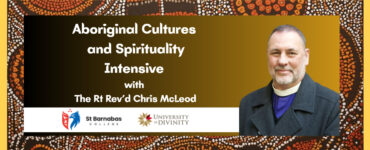What do we want? Patience. When do we want it? NOW!
Anyone who has ever driven any distance with children knows they always eventually ask, ‘Are we there YET?’ It is just plain difficult to be patient when we are children. It is hard to wait…for a birthday, or Christmas, or for quite what we do not know. Here in Victoria, we have to wait yet again for life to resume whatever new patterns of possibilities and restrictions the coronavirus will impose on us even when it subsides.
The scriptures have a lot to say about waiting. The psalmist calls out ‘how long’ almost more often than any other prayer. At times, it can seem that God is just far off or even indifferent to our circumstances, but as I often say, feelings are not facts.
No one is more patient than God. God’s patience with us is demonstrated through God’s waiting for us to respond without overriding our capacity to do so, rejecting our tardiness, or our initial failure to understand. Think of Jesus’ unfolding self-disclosure to Mary Magdalene. At first she simply mistakes her risen friend for the gardener. He does not rebuke her, but speaks her name. Only then does she recognise who stands before her, although she still imagines the familiar relationship between them has been restored, rather than the future one is now unfolding (John 20.11-18).
It is the same with the two on the Emmaus Road who fail to recognise that the risen Christ walks with them. Jesus waits until they offer him hospitality before he discloses himself as, in truth, the one hosting them (Luke 24.13-35).
We learn patience through experience as we become adults. We learn that the seeds will push through the soil, the special day will come, and we will ‘be there’ – eventually. And we learn that the journey is just as important as the destination, that we cannot control all that happens, and that forcing processes that need time usually destroys the outcome we desired.
As the seed of God grows within us, to borrow an image from 13th century German theologian Meister Eckhart, so does our capacity for patience grow – but only to the extent we attend to the soil from which it springs: constancy in our commitments, compassion towards a broken world and ourselves within it, and a readiness to accept that when patience comes, it is paradoxically, pure gift of the Spirit.
Revd Dr Colleen O’Reilly is an Adjunct Lecturer at Trinity College Theological School.







Add comment